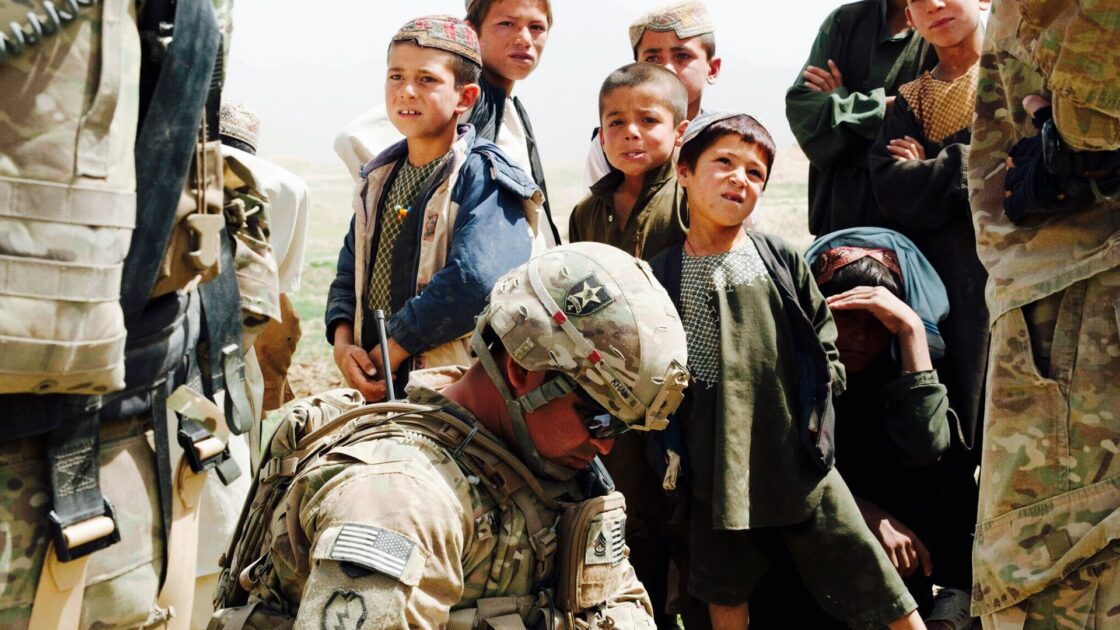Was America’s longest war worth it?
With Afghanistan’s future looking uncertain, Kenneth Henry unpacks what led to the events of the last month.

CW: This article contains descriptions of terrorism, war and violence.
It’s been a month since the Taliban took over in Afghanistan. In this time, we have witnessed horrific scenes of people falling from Military planes, people climbing on top of airliners and devastating photos of the recent terrorist attack, which killed more than 70 people, including 13 US military personnel.
How did this happen?
What we are witnessing didn’t come unexpectedly. For the last number of decades, war and bloodshed have been a familiar sight for Afghans. To trace how we got here we need to go back to 1973, 50 years after it gained independence from Britain. The Pro-Communist general Mohammed Daoud Khan overthrows his cousin, King Mohammed Zahir Shah, with the help of the Army. Khan rules for five years introducing social reforms while at the same time cracking down on opponents.
Daoud is himself killed when the Afghan communist party takes over. In the same year, an armed group called the Mujahadeen is formed by Islamic leaders and begins an armed revolt against the communist government because of the changes implemented by the government.
The following year the Soviet Union invaded Afghanistan to support the communist regime. In 1986 the Mujahideen began to receive support from foreign backers, including the US and China. After 10 years of fighting in Afghanistan, the Soviet Union withdrew from Afghanistan, however, fighting continued until the communist government collapsed and the Islamic government was formed.
Three years after this the Taliban rose to power, their leadership is quickly approved of by the Afghan people who are exhausted by war and poverty. The Taliban quickly implement strict Islamic rules such as prohibiting women to travel without a man. Such values are enforced by public executions and amputations.
September 11
On September 11th, 2001, Al Qaeda operatives fly two planes into the world trade center in New York, they also fly a plane into the pentagon and a fourth hijacked plane crashes in Pennsylvania believed to be headed for the White House.
The preparator behind the attacks, Osama bin Laden was based in Afghanistan. The US demanded that the Taliban hand him over, however upon refusing the US along with its Nato allies invaded Afghanistan and overthrew the Taliban government.
As well as hunting Bin Laden and other top al Qaeda leaders, the US bank-rolled the establishment of a new democratic republican political system in Afghanistan.
Taliban regain power
Although the Taliban were overthrown from power there were still in existence with many of the fighters and leaders fleeing to the mountains in rural parts of the country or to neighboring Pakistan and began to launch hit and run style tactics against the US and allies. This continues for the next 20 years. Until 2018 when the US began negotiating the terms of a US withdrawal with the Taliban in Qatar. However, the talks made little progress as the Taliban began to capture massive amounts of territory in Afghanistan from government forces.
This advance from the Taliban accelerated as US troops entered the final stage of their withdrawal from Afghanistan on foot of a key campaign promise by US president Joe Biden to end the war in Afghanistan. The rapid advance continued until the Taliban reached the outskirts of the capital, Kabul. Here the Taliban negotiated with the Afghan government for the transfer of power.
Will Afghans revolt against the Taliban?
The scenes of desperation that we see on our television screens of civilians trying to flee their country are undoubtedly fueled by memories of the Taliban’s rule in the late 90s and early 2000s. What lies next for Afghanistan is unknown, there are a lot of questions that remain unanswered such as, will the Taliban stick by their word and rule with a softer touch, will Afghans revolt against the Taliban? And most of all was America’s longest war worth it?






